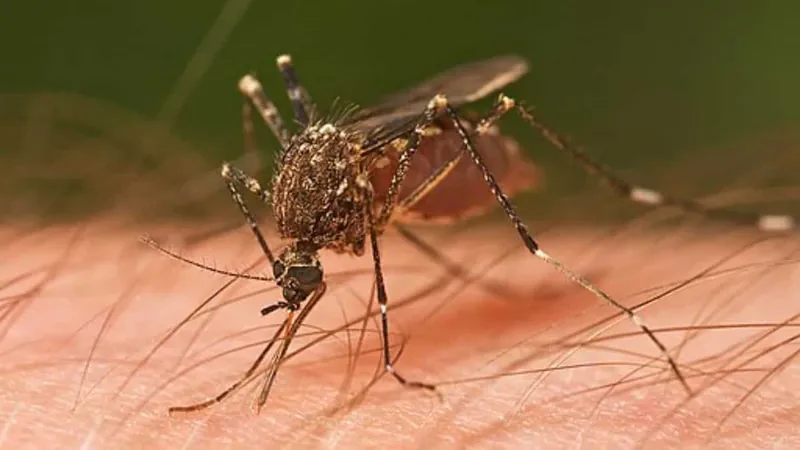
Groundbreaking Research: Can Deaf Male Mosquitoes Put an End to Dengue Fever?
2024-11-05
Author: John Tan
In an innovative approach to fight the spread of mosquito-borne diseases like dengue fever and Zika, scientists have turned to a rather unconventional solution—making male mosquitoes deaf. This intriguing strategy aims to significantly reduce mosquito populations by preventing males from mating, thereby curbing the breeding cycle.
Mosquitoes primarily rely on their acute sense of hearing to locate potential mates. Males are particularly attuned to the distinctive wingbeats produced by females during flight. A groundbreaking study conducted at the University of California, Irvine, has shed light on this mating behavior by altering a genetic pathway integral to the hearing mechanism in male mosquitoes.
Researchers conducted experiments involving the Aedes aegypti species, notorious for transmitting viruses that affect nearly 400 million individuals annually. They first targeted a specific protein known as trpVa, which plays a crucial role in auditory perception. The results were striking: the modified male mosquitoes exhibited no response to the enticing sounds produced by females, effectively rendering them unable to hear.
Over a three-day observation period in controlled settings, the hearing-impaired males failed to engage in mating activities, while their non-mutated counterparts successfully mated with nearly all available females. This pivotal discovery highlights the potential of utilizing genetic modification to skew mosquito populations towards male dominance, consequently leading to fewer breeding opportunities for females—who are responsible for spreading the diseases.
The researchers have reported that the impact of this genetic alteration was “absolute,” affirming that deaf males did not mate at all. The implications of their findings are profound. If deployed effectively, this technique could significantly diminish the number of female mosquitoes, ultimately steering public health efforts towards potentially eradicating the diseases they spread.
Dengue fever, characterized by severe flu-like symptoms, affects millions each year, and Zika has been linked to severe birth defects. With approximately 4 billion people at risk for dengue, innovative methodologies like these could be game-changers in the global fight against vector-borne illnesses.
While the study is still in its early experimental stages, the prospect of engineered deaf mosquitoes offers a fascinating glimpse into the future of disease control. Scientists hope that further research will lead to practical applications, potentially paving the way for new strategies in managing mosquito populations worldwide. Stay tuned as this groundbreaking research unfolds—could the secret to halting dengue fever be just a buzz away?

 Brasil (PT)
Brasil (PT)
 Canada (EN)
Canada (EN)
 Chile (ES)
Chile (ES)
 España (ES)
España (ES)
 France (FR)
France (FR)
 Hong Kong (EN)
Hong Kong (EN)
 Italia (IT)
Italia (IT)
 日本 (JA)
日本 (JA)
 Magyarország (HU)
Magyarország (HU)
 Norge (NO)
Norge (NO)
 Polska (PL)
Polska (PL)
 Schweiz (DE)
Schweiz (DE)
 Singapore (EN)
Singapore (EN)
 Sverige (SV)
Sverige (SV)
 Suomi (FI)
Suomi (FI)
 Türkiye (TR)
Türkiye (TR)